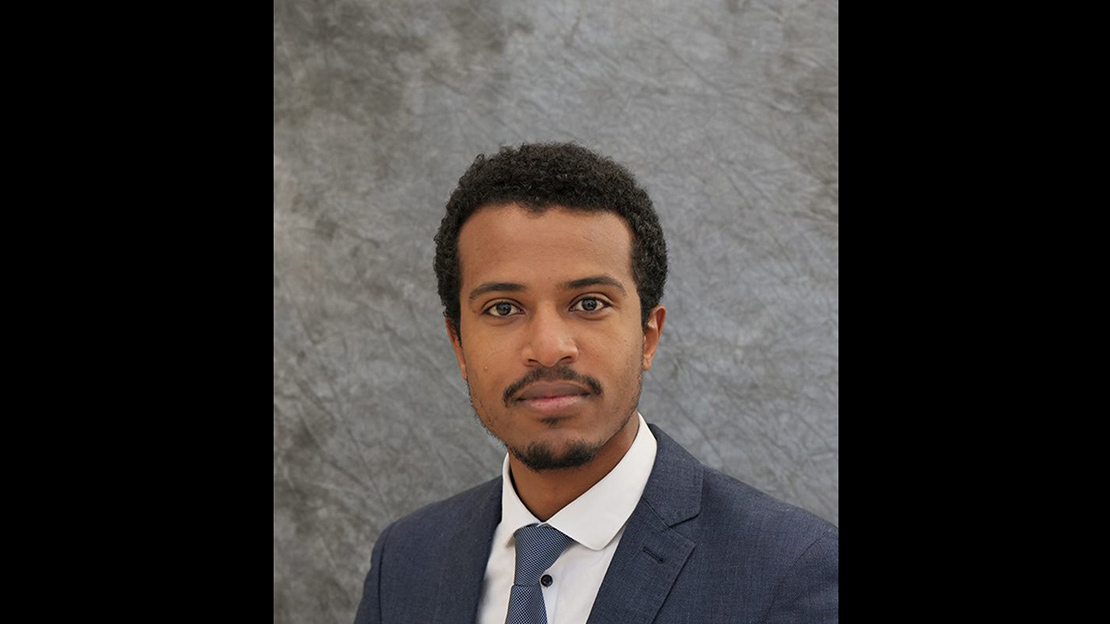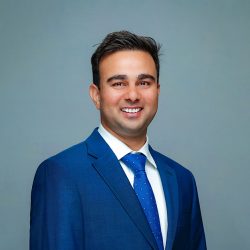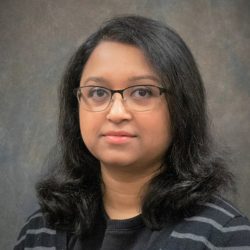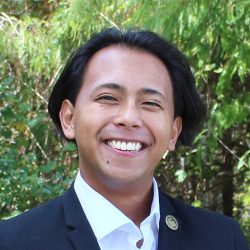Michael Getachew Tadesse
Addis Ababa, Ethiopia
College:
College of Engineering and Computer ScienceDegree Program:
Civil Engineering PhD
Research Focus:
Coastal and river flooding risk managementStorm surge is a huge problem around the world because it batters coastlines and can destroy roadways and homes. Understanding how surges form and evolve means looking at the past to determine patterns and potentially predict future behavior. That’s where UCF doctoral student Michael Getachew Tadesse comes in. Working with Engineering Assistant Professor Thomas Wahl, Tadesse’s research aims to model storm surges. Before his research, global historical data on storm surges did not date back far enough. Using atmospheric and oceanic variables, his research has created a database to infer missing storm surge data.
Tadesse grew up in Addis Ababa, Ethiopia. Ethiopia is home to the Danakil Depression, one of the hottest, driest, and lowest places on the planet. It’s no shock Tadesse chose a career in something so environmentally conscious as water resources engineering. After receiving his Bachelor of Science for Civil and Environmental Engineering in his hometown, Tadesse traveled across Europe, studying flood risk management in five different countries (Germany, the Netherlands, Spain, Slovenia, and Denmark).
“From the Maeslantkering (the storm surge barrier in the Netherlands) to a state-of-the-art hydrological and hydrodynamic modeling practices, to well-thought-out spatial planning of coastal cities, every day there were new things to learn,” Tadesse says.
In the Netherlands, he obtained his master’s degree in water science engineering and had the chance to travel to Florida and visit the South Florida Water Management District (SFWMD).
“It had a long-lasting impression on me,” Tadesse says. “I had a hunch I would be back.”
Shortly after completing his master’s degree, he applied to UCF’s College of Engineering and Computer Science for a doctoral degree in Civil Engineering.
His initial passion for coastal and river flooding risk management allowed him to expand his horizons into modeling storm surge data. Tadesse’s work was published in Nature Scientific Data earlier this year.
“It’s a humbling experience to be able to contribute to the scientific community. It gives me great pleasure to see that my research adds value to the grand scheme of understanding extreme sea-level events such as storm surges and how we can adapt to them accordingly,” he says.
Choosing UCF for his PhD and his work with Dr. Wahl has been instrumental in furthering his drive to work in water resources engineering. While at UCF, Tadesse has interned at two water resources engineering companies through the Experiential Learning Program. Between the classwork, research, and his internship, Tadesse says he’s gotten a holistic look at water resources problems in the real world. After graduation, he plans to dive deeper into water resources engineering and data-driven modeling, particularly in the areas of coastal and river flooding.
Highlights:
- Lead author of study to optimize and increase the efficiency of data-driven models used to reconstruct surge data
- Published in Nature Scientific Data
Melody Halbert
As the child of a Chinese immigrant mother and a Scots-Irish American father, Melody Halbert knows the value of community. Watching her mother, who moved alone to the United States...
Amrita Goswamy
Around the world, someone dies from a road accident every 25 seconds. About 1.35 million people die annually on roads worldwide, and another 20 million to 50 million are seriously...
Jethro Suarez
Growing up, Jethro Suarez was inspired by his parents to give back to those around him. Both his mother and father have served as nurses for years, and his father...




